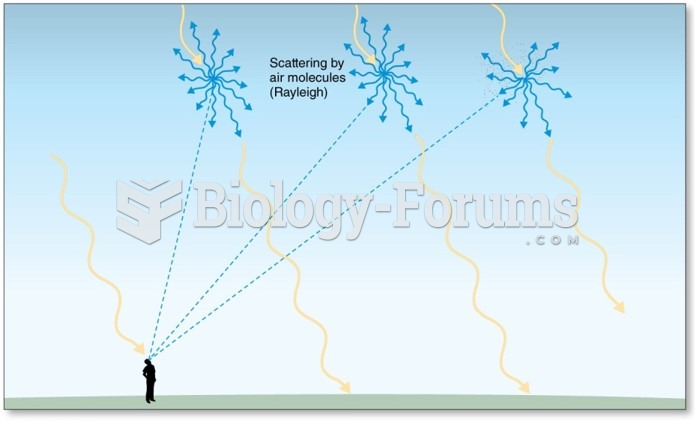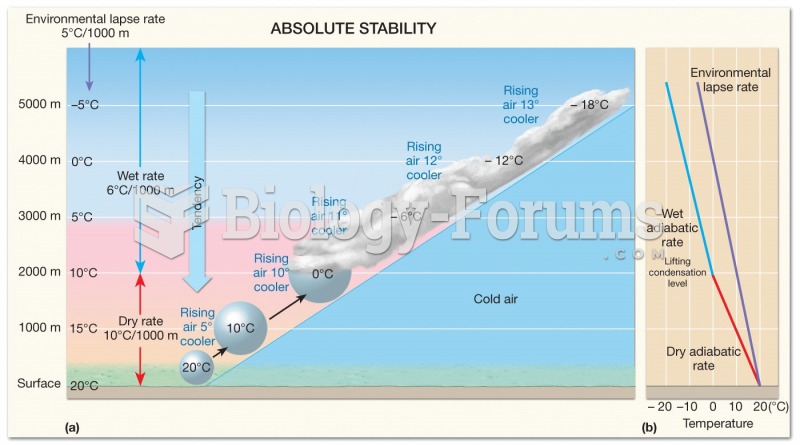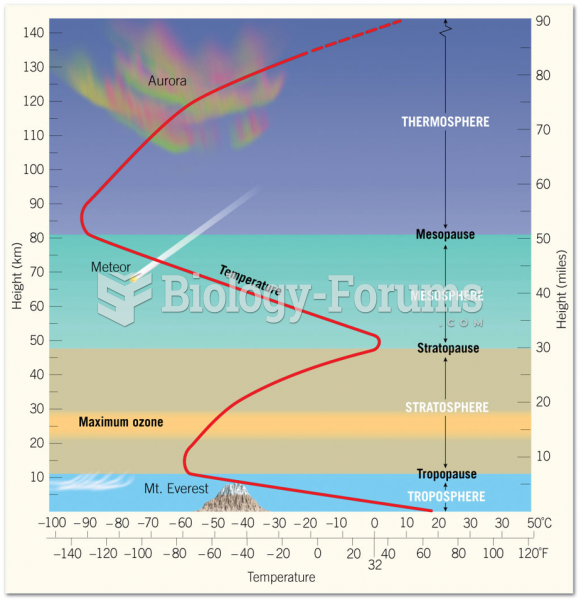Answer to Question 1
ANSWER: If the lapse rate is exactly equal to the dry adiabatic rate, rising or sinking unsaturated air will cool or warm at the same rate as the air around it. At each level, it would have the same temperature and density as the surrounding air. Because this air tends neither to continue rising nor sinking, the atmosphere is said to be neutrally stable. For saturated air, neutral stability exists when the environmental lapse rate is equal to the moist adiabatic rate.
Answer to Question 2
ANSWER: If we imagine a small volume of air, referred to as a parcel of air, we see that although the air parcel can expand and contract freely, it does not break apart, but remains as a single unit. At the same time, neither external air nor heat can mix with the air inside the parcel. The space occupied by the air molecules within the parcel defines the air density. The average speed of the molecules is directly related to the air temperature, and the molecules colliding against the parcel walls determine the air pressure inside. At Earth's surface, the parcel has the same temperature and pressure as the air surrounding it. When we lift the air parcel up into the atmosphere the air pressure surrounding the parcel lowers. The lower pressure outside allows the air molecules inside to push the parcel walls outward, expanding the parcel. Because there is no other energy source, the air molecules inside must use some of their own energy to expand the parcel. This shows up as slower average molecular speeds, which result in a lower parcel temperature. If the parcel is lowered to the surface, it returns to a region where the surrounding air pressure is higher. The higher pressure squeezes (compresses) the parcel back into its original (smaller) volume. This squeezing increases the average speed of the air molecules and the parcel temperature rises. Hence, a rising parcel of air expands and cools, while a sinking parcel is compressed and warms.







